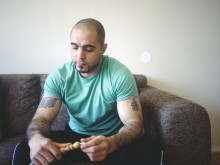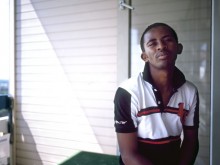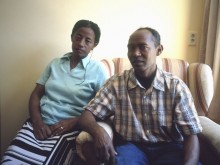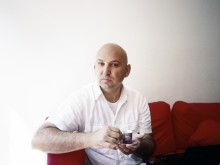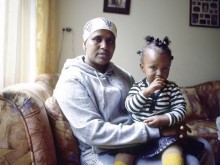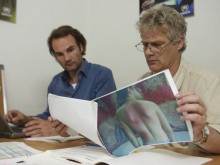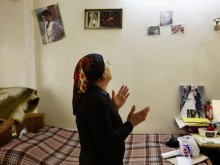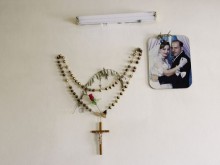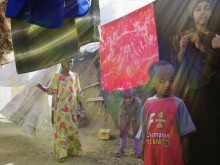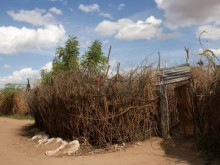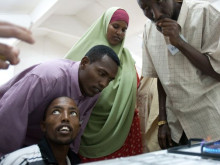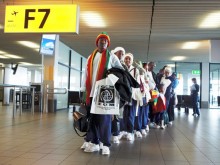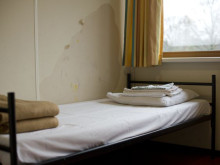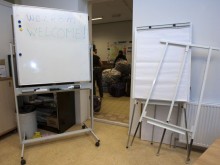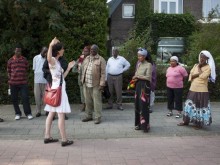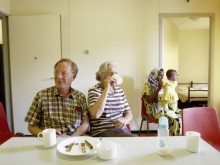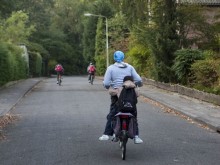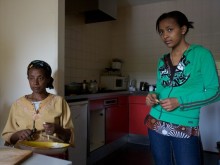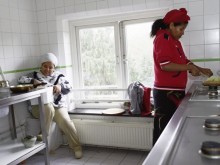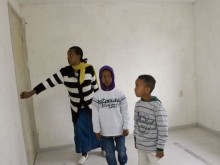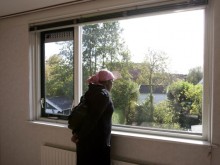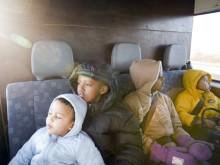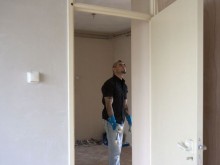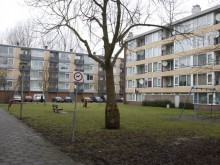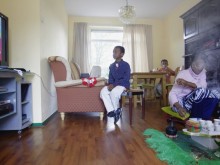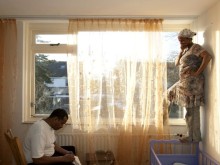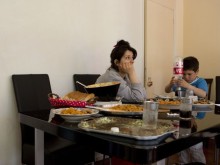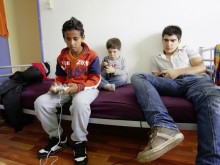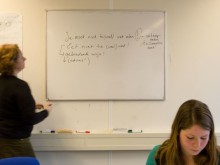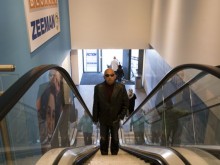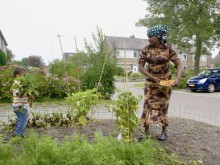The Refugee Jackpot
The Aliens Legislation in European countries is becoming stricter; integration issues determine the political agenda and the battle for the voter. ‘Happiness Seekers’ are stopped at the gate. Yet the ‘real’ refugee is still entitled to a stay in Europe. Indeed, refugees are even invited. The Netherlands plays a leading role in this respect and has since 1984 participated in the resettlement policy of the United Nations High Commissioner for Refugees (UNHCR). The Refugees organization makes proposals; the Netherlands decide who they will allow in the country, some five hundred persons every year.
The purpose of resettlement, as defined by the UNHCR, is threefold. It provides international protection to refugees, contributes to a sustainable solution to the refugee problem and expresses solidarity between countries. Four times a year, the Immigration and Naturalisation Service (IND) or- ganizes selection missions to places where refugees are given shelter. These are followed, a few months later, by the Cultural Orientation Training of the Central Reception Organisation for Asylum Seekers (COA) which prepares the resettled refugees for what they can expect in their host country. A few weeks later, they come to live in a refugee centre (AZC), set up especially for them in Amersfoort and are prepared for the Dutch society. They are shown how an ATM works, learn about traffic and are taught about our customs.
Roughly five months later they are ‘relocated’ (in groups) to various Dutch municipalities. This puts an end to the role of the COA and the ‘preferential’ status of these refugees. They now have the same obligations as any other newcomer.
From that moment on, the task of the municipalities begins. The Social Ser- vices regulate the social security payments, the child-related budget, and health insurance. This is where the refugees start their integration. Vluchtelingen- Werk (The Dutch Council for Refugees) is the intermediary between the muni- cipality and the refugee and helps refugees find their way in Dutch society: from decorating their home and reading the mail to making bill payments.
What does it mean to be an invited refugee, we wondered. How does the UNHCR make its selection and how does the Netherlands make its choice? But above all, what are all the newcomers in the Netherlands up against? What does it mean for the refugees themselves to be resettled? And what are their expec- tations and are these met in any way?
For eighteen months, we followed two groups of resettled refugees. From the moment of the selection abroad to when they have actually been living in their new home community for several months and the first novelty has worn off. One group comes from Kakuma, a refugee camp in northern Kenya, the other is a group of Iraqis from Syria. The people from Kenya are Ethiopian, Somali and Rwandan refugees, who fled the war in their country and came to Kenya and have, in many cases, been living in Kakuma for decades. The Iraqis have become refugees only recently. They are often educated and are accustomed to the same comforts as we know in the West. Most of these Iraqi refugees already have family living in the Netherlands.
The refugees are eager to build a new life. But that cannot be done instantaneously. The Netherlands is a country with many social services, but also rules and procedures. Housing, language training, education, everything is organised, but it takes time. The confrontation with Dutch bureaucracy is difficult and frustrating for many of the newcomers; they have been waiting for years to move on with their lives.
But starting a new life in a foreign country is a difficult process of trial and error, disappointments and adjusted expectations.

